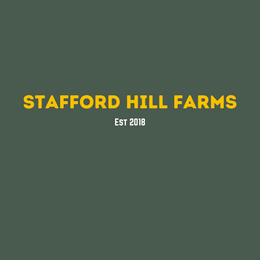Chicken Care 101
Our chickens are an amazing option for backyards and egg businesses of all kinds. If you are new to chickens sometimes you habe questions or there are things you just dont know, well thats perfectly fine we are here to help! The first question you should ask yourself, is this for profit or food for your family? Once you know that it's way easier than you may think.
Basic Needs
No matter which category you are in all chickens will need the same basic needs. Food, water and shelter are the basics, but we'll break it down a little further.
Food, water and shelter can be drastically different depending on the age of your chickens. This next segment we will be focusing on the needs of full grown hens that are ready for egg production.
Food- There are many different types of food out there. Layer, crumble, starter, grower, pellets, scratch, fodder, fermented feed and other slang terms. I'm going to attempt to break this down the best way i can.
- Layer- Feed for hens that are of laying age
- Grower-Feed ration for raising pullets from chicks into laying age.
- Starter-Chick Feed for the babies
- Crumble- A description of the feeds Consistency. Tiny pieces of feed.
- Pellets- pellets are a pelletized feed that are usually meant for mature chickens due to their size.
- Scratch (Grain)- scratch or grains are your treats! Scratch grains are great but are not a full and complete diet. A mix of grains usually consisting of a cracked corn base.
- Fodder- mini greens grown indoors.
- Fermented Feed- Feed that has been soaked in water for 3 days. Fermentation can given extra benefits to your feed but will take some time.
Water- Chickens should always have clean water. You don't have to go all crazy and do a rain water collecting gravity feed automatic waterering system your first go. Simple is good, chickens just need a clean source of fresh water. Use what you have until you know what you want. Your situation will very from everyone else's do what's best for you and your hens.
Shelter- Shelters should be sturdy and predator proof with adequate spacing for hens. There are many different types of coops out there. The main thing you can ask yourself here is "Do my chickens need an enclosed run or will they be free ranging an area?" Breaking it these two categories makes it easier to figure out what kind of coop, size and predator-proofing measures to take.
- Coop- Just your chickens house where they will sleep at night. Just like our homes they come in all sizes shapes and color.
- Enclosed Run- A dedicated area built in addition to your coop for hens to run around during the day.
- Free Ranging- Letting your chickens roam your property freely.
Once you know which one you will need you can focus on the design of the coop and size. For all coops your hens will need roosting bars to sleep on at night. 2x4's turned flat so that the fat side is up and where the place their feet is a great design. You can also just use some thick branches for your roosts. All coops will need strong protection against predators. We suggest metal hardware cloth rather than chicken wire, trust me experience teaches you a lot. Wind protection is a must for your hens. During winter months you can add some extra insulation by using plastic roll sheeting from any hardware store. Never ever use a heat lamp or an electric heater inside your coop. This is a major fire hazard and not needed if your have adequate wind protection.
Your coop does not have to be Taj Mahal to get started. Yes it's nice for the "gram" and all but not necessary for backyard hens. Budget friendly and reused items for your first go are a great option!
We are always here to help you on your journey, feel free to reach out anytime!
